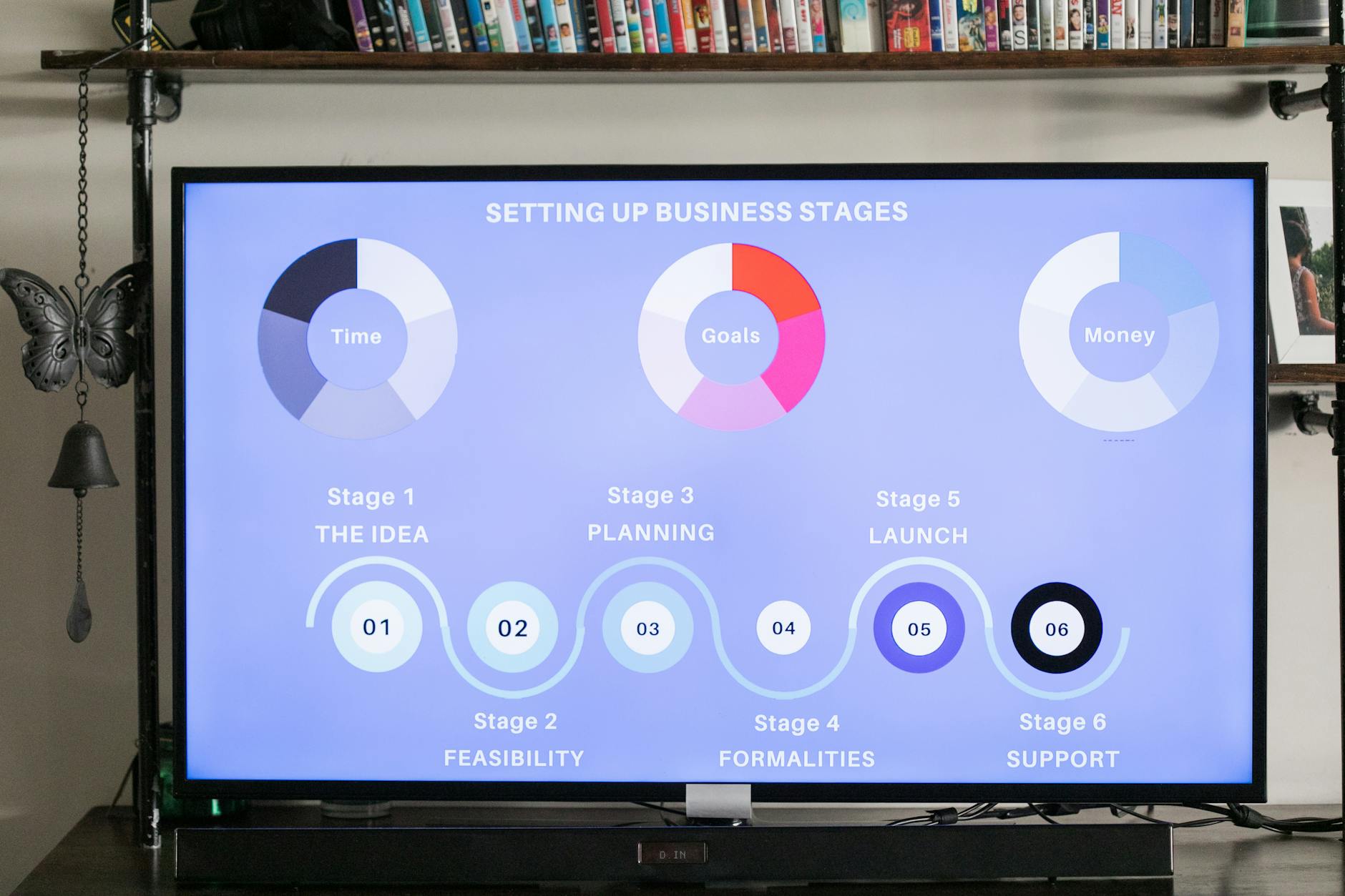
Are you tired of living paycheck to paycheck, constantly worrying about money? 💸 Financial freedom may seem like a distant dream, but it’s closer than you think. The key lies in developing powerful habits that can transform your financial future.
Imagine a life where you’re in control of your finances, free from debt, and able to pursue your passions without monetary constraints. Sounds appealing, right? 🌟 The good news is, achieving this doesn’t require a windfall or a miracle. It’s all about cultivating the right habits consistently.
In this post, we’ll explore the top 5 habits that can pave your way to financial freedom. From creating a budget that actually works to diversifying your income streams, we’ll cover actionable strategies that you can start implementing today. Whether you’re just starting your financial journey or looking to level up, these habits will be your compass to a brighter, more secure financial future. Let’s dive in and unlock the secrets to true financial independence!
Â
Create and Stick to a Budget

Track your income and expenses
Tracking your income and expenses is the foundation of effective budgeting. Start by listing all your income sources and categorizing your expenses. This practice gives you a clear picture of your financial health and helps identify areas for improvement.
Here’s a simple table to help you get started:
| Income Sources | Amount | Expense Categories | Amount |
|---|---|---|---|
| Salary | $3,000 | Housing | $1,000 |
| Side Hustle | $500 | Transportation | $300 |
| Investments | $200 | Food | $400 |
| Total | $3,700 | Total | $1,700 |
Identify areas to cut back
Once you’ve tracked your spending, look for areas where you can reduce expenses. Common areas for potential savings include:
Â
-
- Dining out less frequently
-
- Canceling unused subscriptions
-
- Finding cheaper alternatives for regular purchases
-
- Negotiating bills (e.g., phone, internet)
Set realistic financial goals
With a clear understanding of your finances, set SMART goals:
Â
-
- Specific
-
- Measurable
-
- Achievable
-
- Relevant
-
- Time-bound
For example, “Save $5,000 for an emergency fund within 12 months” is a SMART goal that can guide your budgeting decisions.
Use budgeting apps or tools
Leverage technology to simplify your budgeting process. Popular apps like Mint, YNAB (You Need A Budget), or Personal Capital can help you:
Â
-
- Automatically track expenses
-
- Categorize spending
-
- Set and monitor financial goals
-
- Receive alerts for unusual activity
By implementing these strategies, you’ll create a solid foundation for your financial journey. Next, we’ll explore how to save and invest consistently to grow your wealth over time.
Â
Save and Invest Consistently

Automate your savings
Automating your savings is a crucial step towards financial freedom. By setting up automatic transfers from your checking account to your savings account, you ensure consistent savings without relying on willpower. This “pay yourself first” approach helps you prioritize savings before discretionary spending.
Build an emergency fund
An emergency fund is your financial safety net. Aim to save 3-6 months of living expenses in a readily accessible account. This fund protects you from unexpected costs and reduces financial stress.
| Emergency Fund Size | Recommended for |
|---|---|
| 3 months | Stable job, low debt |
| 6 months | Variable income, high debt |
Invest in low-cost index funds
Low-cost index funds offer a simple, effective way to invest in the stock market. They provide:
Â
-
- Broad market exposure
-
- Low fees
-
- Passive management
-
- Diversification
Explore retirement accounts
Maximize your retirement savings by utilizing tax-advantaged accounts:
Â
-
- 401(k): Employer-sponsored plan with potential matching
-
- IRA: Individual Retirement Account with tax benefits
-
- Roth IRA: After-tax contributions for tax-free growth
Diversify your investment portfolio
Diversification helps manage risk and potentially increase returns. Consider spreading your investments across:
Â
-
- Stocks
-
- Bonds
-
- Real estate
-
- International markets
Now that you understand the importance of consistent saving and investing, let’s explore how living below your means can further accelerate your path to financial freedom.
Â
Live Below Your Means

A. Avoid lifestyle inflation
Lifestyle inflation can be a significant roadblock on your journey to financial freedom. As your income grows, resist the temptation to increase your spending proportionally. Instead, focus on maintaining your current standard of living and redirecting the extra income towards savings and investments.
| Income Increase | Avoid | Embrace |
|---|---|---|
| 10% raise | Upgrading to a luxury car | Increasing retirement contributions |
| Bonus | Expensive vacations | Paying off debt |
| Side hustle earnings | Designer clothing | Building an emergency fund |
B. Practice mindful spending
Mindful spending is crucial for living below your means. Before making a purchase, ask yourself:
Â
-
- Is this item a need or a want?
-
- Will it add long-term value to my life?
-
- Can I find a more affordable alternative?
-
- Does this align with my financial goals?
By pausing to reflect on these questions, you’ll make more intentional spending decisions and avoid unnecessary expenses.
C. Find free or low-cost entertainment
Entertainment doesn’t have to break the bank. Explore these budget-friendly options:
Â
-
- Utilize your local library for books, movies, and events
-
- Attend free community festivals and concerts
-
- Explore nature through hiking or picnics in parks
-
- Host potluck dinners with friends instead of dining out
-
- Take advantage of museum free days or discounted admission times
D. Embrace minimalism
Adopting a minimalist lifestyle can significantly reduce your expenses and help you focus on what truly matters. Consider these strategies:
Â
-
- Declutter your living space and sell or donate unused items
-
- Opt for quality over quantity when making purchases
-
- Simplify your wardrobe with versatile, timeless pieces
-
- Choose experiences over material possessions
By embracing these habits, you’ll naturally spend less and find more satisfaction in life’s simple pleasures. As we move forward, let’s explore how increasing your income streams can further accelerate your path to financial freedom.
Â
Increase Your Income Streams

Develop new skills
In today’s rapidly changing job market, developing new skills is crucial for increasing your income streams. By continuously learning and expanding your skillset, you open doors to better job opportunities and higher-paying positions. Consider these strategies:
Â
-
- Enroll in online courses or workshops
-
- Attend industry conferences and seminars
-
- Seek mentorship from experts in your field
-
- Practice self-directed learning through books and podcasts
Start a side hustle
A side hustle can be an excellent way to diversify your income and accelerate your path to financial freedom. Here are some popular side hustle ideas:
| Side Hustle | Potential Earnings | Time Investment |
|---|---|---|
| Freelance writing | $50-$500 per article | 5-20 hours/week |
| Online tutoring | $20-$50 per hour | 10-15 hours/week |
| Dropshipping | $500-$5000 per month | 15-30 hours/week |
| Social media management | $1000-$5000 per month | 20-40 hours/week |
Negotiate for better pay
Don’t underestimate the power of negotiation in boosting your income. Here are some tips for successful salary negotiations:
Â
-
- Research industry standards for your position
-
- Highlight your achievements and value to the company
-
- Practice your pitch with a trusted friend or mentor
-
- Be prepared to discuss non-salary benefits
Invest in income-generating assets
Investing in assets that generate passive income is a smart way to build long-term wealth. Consider these options:
Â
-
- Dividend-paying stocks
-
- Real estate investment trusts (REITs)
-
- Peer-to-peer lending platforms
-
- Rental properties
By diversifying your income streams through these methods, you’ll be better positioned to achieve financial freedom and build lasting wealth. Next, we’ll explore the final crucial habit: eliminating and avoiding debt.
Â
Eliminate and Avoid Debt

Pay off high-interest debt first
When tackling debt, prioritizing high-interest obligations is crucial. These debts, typically credit card balances, can quickly spiral out of control due to compounding interest. By focusing on high-interest debt first, you’ll save money in the long run and accelerate your journey to financial freedom.
| Debt Type | Average Interest Rate | Priority |
|---|---|---|
| Credit Cards | 16-20% | Highest |
| Personal Loans | 10-15% | High |
| Auto Loans | 4-6% | Medium |
| Mortgages | 3-5% | Low |
Use the debt snowball or avalanche method
Two popular strategies for debt elimination are the snowball and avalanche methods:
Â
-
- Debt Snowball:
Â
-
- Pay minimum on all debts
-
- Focus extra payments on smallest debt
-
- Build momentum with quick wins
-
- Debt Snowball:
-
- Debt Avalanche:
Â
-
- Pay minimum on all debts
-
- Focus extra payments on highest-interest debt
-
- Save more money long-term
-
- Debt Avalanche:
Choose the method that aligns best with your financial situation and personality.
Avoid unnecessary credit card usage
Credit cards can be a useful financial tool, but they can also lead to debt if misused. To avoid accumulating debt:
Â
-
- Use cash or debit cards for daily expenses
-
- Reserve credit cards for emergencies or planned purchases
-
- Pay off the full balance each month
-
- Take advantage of rewards programs without overspending
Understand good debt vs. bad debt
Not all debt is created equal. Understanding the difference between good and bad debt can help you make informed financial decisions:
Â
-
- Good debt: Investments that appreciate or generate income (e.g., mortgages, student loans for high-earning careers)
-
- Bad debt: Purchases that depreciate or don’t generate income (e.g., luxury items, vacations on credit)
Refinance loans for better terms
Refinancing can be an effective strategy to reduce interest rates and monthly payments. Consider refinancing:
Â
-
- Mortgages when rates drop significantly
-
- Student loans to consolidate or switch to a lower rate
-
- Auto loans if your credit score has improved
By implementing these debt elimination strategies, you’ll be well on your way to achieving financial freedom. Remember, the key is to stay committed to your debt-free goals and avoid taking on new unnecessary debt.

Financial freedom is within reach when you adopt these five key habits. By creating and adhering to a budget, you gain control over your spending and can allocate your resources more effectively. Consistent saving and investing allow your money to work for you, building wealth over time. Living below your means ensures you have extra funds to put towards your financial goals, while increasing your income streams provides additional financial security and opportunities for growth. Finally, eliminating and avoiding debt frees up your income and reduces financial stress.
Implementing these habits may require discipline and patience, but the rewards are well worth the effort. Start small by focusing on one habit at a time, and gradually incorporate all five into your daily life. Remember, financial freedom is a journey, not a destination. By cultivating these habits, you’ll be well on your way to achieving lasting financial success and the peace of mind that comes with it.
